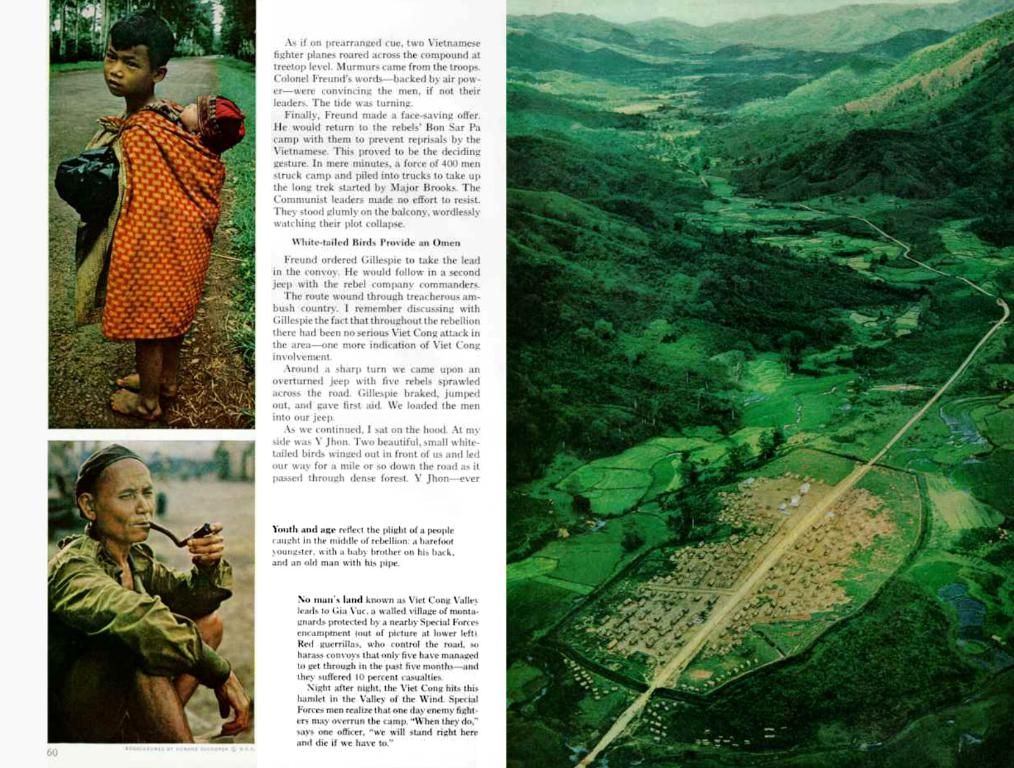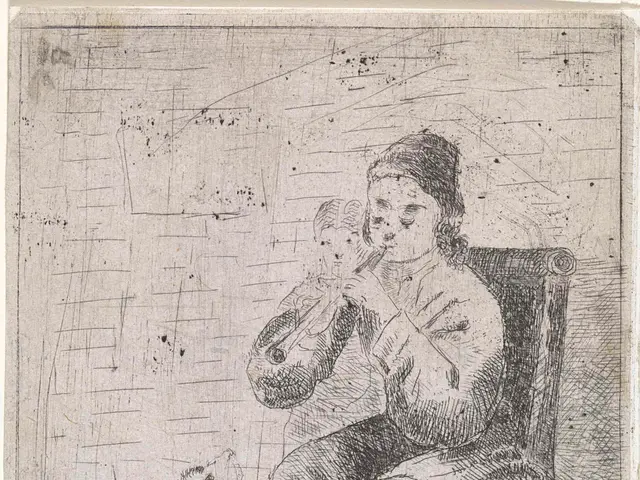Famous Scenarist Tertius Kapp Discusses Griekwastad in Interview
The Griekwastad-murders are immortalized in the chilling town of Griekwastad with a gripping screenplay by Tertius Kapp and expert direction by Jozua Malherbe.
This film delves into the gruesome acts that shook the world in 2012. The production company SCENE23 brought this harrowing tale to life in 2019. Based on Jacques Steenkamp's best-selling book 'The Griekwastad Murders: The Crime that Shook South Africa,' iconic South African actor Arnold Vosloo delivers an unforgettable performance as the investigator, while Alex van Dyk, known for 'The Harvesters/Die Stropers,' chills as the only surviving son involved in the brutal farm murders.
Kapp on penning Gaia
Attendee of one of our long-awaited workshops in 1999 at the Longkloof Studios, Tertius Kapp, the writer behind Griekwastad, crafted a compelling narrative centered on the search for truth in the face of the shocking events of that fateful night. Kapp's resume includes the screenplay for Dis Ek, Anna and the 2016 SAFTA-winning adaptation. In 2015, he was awarded the prestigious Hertzog prize for his published dramas. Check out his website
Daniel Dercksen chats with screenwriter Tertius Kapp, a proud alumnus of our platform
It's hard to believe we met 20 years ago during one of your early workshops in Cape Town, and you still remember some of my notes on character and structure?
It's a pleasure to catch up with you 20 years after you introduced me to screenwriting, Daniel! I was young and eager when I enrolled in your course, typing away on an old-school typewriter. Figuring out how to format dialogue, among other things, was a fun challenge.
And yes, those early notes on character, structure, etc., are forever etched in my memory, especially as they were later confirmed by real-life experience. Thank you for taking the time to present the course so thoughtfully.
I recall the story I was working on (which I still have in hard copy) was called Sapiens and focused on a man who rejected society to live in the mountains. It's interesting that Into the Wild told a similar story beautifully a decade later.
I think Sapiens evolved into the film Gaia, which we are currently filming. During my research process, I also had the pleasure of reading the book Sapiens by Yuval Noah Harari. Die Spreeus seemed to stem more from my love for South African ghost stories, via Langenhoven, P.G. du Plessis, and the like.
Tell me about the writing process for Griekwastad. How did you come up with the story?
As with any project I take on, I dove headfirst into researching every piece of information available regarding the case. At a certain point, I realized that I was merely procrastinating, prompting me to put pen to paper. Meeting Jacques Steenkamp, the book’s author, and many other key figures in Griekwastad provided the necessary texture to my research. We even attempted to meet with Don in prison, though we never received a response. Various psychologists and people close to Marthella and the family shared their insights and experiences.
A breakthrough moment came during a weekend spent with the investigating officer, Dick de Waal, in Kimberley. That’s when I realized that Dick de Waal would become the film's central protagonist, ultimately portrayed by Arnold Vosloo. He was an understated, intelligent detective who challenged the cliches often found in noir films. For a man who has experienced and processed such intense violence in a country like South Africa, he seems untouched by it, carrying it all home with him.
The film’s logline essentially emerged from the words he spoke during the bail hearing (paraphrased): "In my investigation, I had to focus on the facts and discard everything that didn't make sense. I experienced a torment of the soul, and I struggle to believe that a fifteen-year-old boy was capable of committing such atrocities. I considered every possible motive. In the end, there was only one explanation."
English, though rich in vocabulary, doesn't quite capture the connotations of the word "torment of the soul" found in Dutch.
What do you believe makes this story so powerful?
For starters, it tackles numerous topical issues in South Africa, such as racism, violence against women, and farm murders. However, its true power lies in resonating with themes of repression and the subconscious. The Oedipal complex is present throughout the story. Part of the challenge was tying these deeper, abstract concepts to a captivating detective thriller narrative. Deeper content often refers to current issues in fascinating, indirect ways, just like a guide sketching the final image you erase upon completion.
Tell me more about how you connected these deeper, introspective content with a gripping detective thriller narrative, maintaining balance?
By utilizing the structure of a detective story, where the protagonist chases red herrings while ignoring one obvious clue, I used his internal resistance to the truth due to its horror.
Did you face any challenges during the adaptation process?
Yes, at times. I never found the aspect all that difficult, but working on the script lost momentum at one point, causing me to write blindly, hoping the film would eventually come to fruition.
Did director Jozua Malherbe have any input during the writing process?
He joined the project much later. Of course, I always collaborate with the director on execution and ensuring the film fits within our local budgets. We also discussed added scenes and conducted read-throughs to hear how the dialogue sounded coming from the characters’ voices.
The film lures audiences into a story they think they know, then turns it inside out with an honest and sincere message...your thoughts on this?
It seems we are bombarded with sensationalism, quick to clickbait from a story about a TV presenter's self-esteem issues to one about a grandmother being hacked to death. We struggle to process this dissonance if we view both people as real human beings. Empathy should be a crucial tool in a writer's toolbox - taking the time to understand each character, whether we love them or hate them, is essential to capturing what it must be like to be them.
How do you personally relate to the story?
In many ways, but let's discuss one instance in particular.
The discovery that globally, the second-highest rate of family murders per capita is among the Afrikaner population (which includes myself) shocked me during my research. This fact prompted a strange sense of pity for Don, the clueless heir to a bloody legacy. Without making excuses for him, it seems he didn't possess emotional strength to cope with the problems he faced. And why would he, given their severity and the fact that he was only fifteen years old? His only solution was violence, as guns were readily available.
How has the emotional impact of the story affected you?
Definitely. But there's a difference between adapting true events post-legal proceedings and taking on the burden of presenting that truth to the world. Judge Frans Kgomo and others involved in the case probably carried this burden far more than I did.
- Tertius Kapp, who presented the screenwriting workshop in 1999 at the Longkloof Studios and is credited for the gripping screenplay of the 'Griekwastad-murders' film, shared the intricate process of his writing for the movie, focusing on portraying truth in the face of a shocking event.
- In discussing the storyline for 'Griekwastad,' Kapp delved into the sophisticated balancing act of merging a captivating detective thriller narrative with deeper, introspective content, scrutinizing complex themes like repression, the subconscious, and the Oedipal complex.








